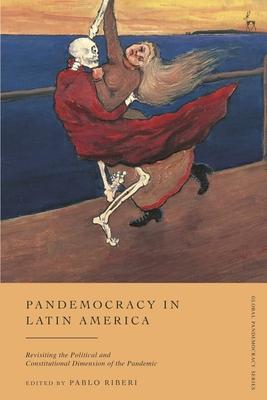This book addresses two questions: firstly, how has the fight against COVID-19, especially the individual and collective responses of Latin American nation-states, influenced the relationship between power, people, and statebodies? And secondly, has democracy taken a step back and allowed pandemocracy to replace its long-term legitimising function?
Adopting a Global South perspective, the book explores the constitutional, political and institutional measures that paved the way for several aggressive state policies in various Latin American countries during the COVID-19 pandemic. The contributions provide a detailed review of democratic decay and the 'rule of law' impairment in many countries of the region. The book goes beyond mere observation and explores all the main theoretical elements that can lead to a more comprehensive understanding of the political and normative impact of the pandemic. In terms of constitutional design and concerning the actual behaviour of political bodies, the fairness and efficacy of Latin American state responses during the COVID-19 pandemic did not rely on civic culture, executive goodwill, or boldness on the part of the judges. The aim of this volume, therefore, is to unravel the most subtle elements of a very puzzling situation. Multidisciplinary perspectives are deployed to explore how democratic standards and goals have been reshaped by nuanced constructions of certain atavistic normative ideas or even by non-constitutional policies. The book sheds light on the underlying connection between politics and law.
Book
Pandemocracy in Latin America: Revisiting the Political and Constitutional Dimension of the Pandemic
(Write a Review)
Hardcover
$127.78
This book addresses two questions: firstly, how has the fight against COVID-19, especially the individual and collective responses of Latin American nation-states, influenced the relationship between power, people, and statebodies? And secondly, has democracy taken a step back and allowed pandemocracy to replace its long-term legitimising function?
Adopting a Global South perspective, the book explores the constitutional, political and institutional measures that paved the way for several aggressive state policies in various Latin American countries during the COVID-19 pandemic. The contributions provide a detailed review of democratic decay and the 'rule of law' impairment in many countries of the region. The book goes beyond mere observation and explores all the main theoretical elements that can lead to a more comprehensive understanding of the political and normative impact of the pandemic. In terms of constitutional design and concerning the actual behaviour of political bodies, the fairness and efficacy of Latin American state responses during the COVID-19 pandemic did not rely on civic culture, executive goodwill, or boldness on the part of the judges. The aim of this volume, therefore, is to unravel the most subtle elements of a very puzzling situation. Multidisciplinary perspectives are deployed to explore how democratic standards and goals have been reshaped by nuanced constructions of certain atavistic normative ideas or even by non-constitutional policies. The book sheds light on the underlying connection between politics and law.Hardcover
$127.78